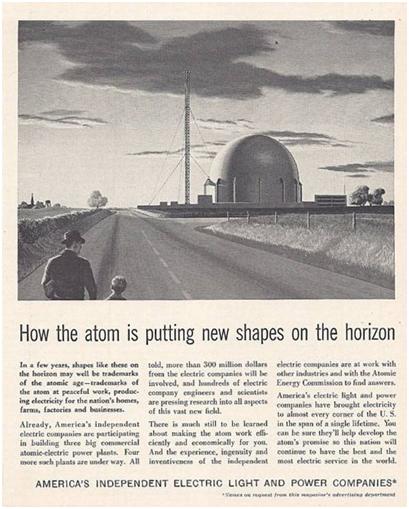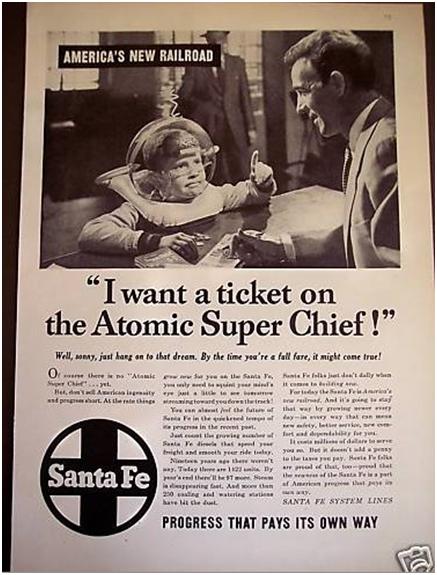The Future That Wasn’t: Failure to Perceive Hidden Costs and Risks
Two other entangled obstacles to technological inevitability must also be considered: unappreciated psychosocial reservations and genuine, but unappreciated hazards that either slow, or virtually inhibit the adoption of what would otherwise be hugely transforming technological advances.
As a child, I was told about what my future would be like and how much better it would be in almost every way, technologically, from the world I then inhabited. I was, literally, a child of the atomic age, and the molecules in the DNA of my brain still bear the 14Carbon isotope signature of the open-air nuclear testing era, just as surely as my bones, made radioactive in my infancy and childhood by the Strontium 90 (90Sr) in the milk I drank are still, ever so slightly, more radioactive today, than are those of people born before, or after, the era of atmospheric nuclear weapons testing.
But beyond these physical stigmata of the atomic age, my mind bears the stigmata of a world promised, but never delivered. Scientists and laymen alike were quick to understand the truly staggering potential benefits of what we now call nuclear power. Countless pronouncements were made that the arrival of an era of cheap, clean, safe, and virtually unlimited electric power was at hand. Electricity generated by ‘atomic power’ and nuclear fusion, we were told, would be so inexpensive to produce that it would not even be worth the expense of metering its use to bill the customer for. People would simply play a flat rate for the service, as is the case for long distance or computer telephony today. In a speech given by Lewis L. Strauss (1896-1974), Chairman of the U.S. Atomic Energy Commission to the National Association of Science Writers, in New York City on September 16th, 1954, Strauss commented on how scientific research then underway would transform life for the next generation of Americans, the generation that would be born in then and in the coming decade, my generation:
“Our children will enjoy in their homes electrical energy too cheap to meter…will travel effortlessly over the seas and under them and through the air with a minimum of danger and at great speeds, and will experience a lifespan far longer than ours, as disease yields and man comes to understand what causes him to age.”
The Santa Fe Railroad, then as commercially important and as technologically credible as Apple or Microsoft are today, anticipated fission reactor powered trains within 20 years, and ran ads in national magazines featuring a youngster only a few years older than me, asking to buy a ticket on an atomic powered version of the Super Chief which was then the preeminent way to travel across the country from Chicago to Los Angeles, in both speed and comfort.
An excerpt from Cryonics and Technological Inevitability.
H/T to Andrew Coyne for the link.





